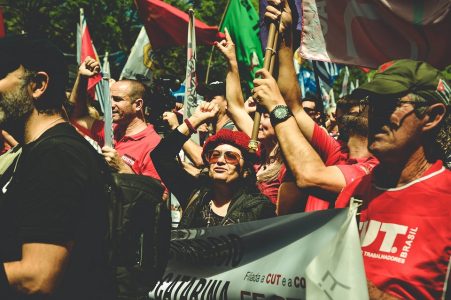This week there was a new round of negotiations and in light of the potentially imminent conclusion of negotiations for a Free Trade Agreement between Mercosur and the European Union, social movements and organizations gathered in the Continental Day for Democracy and against Neoliberalism expressed their rejection to the agreement and demanded an immediate end to the negotiations.
To analyze what this agreement means, Real World Radio interviewed Natalia Carrau, political scientist and member of REDES-FoE Uruguay and Friends of the Earth Latin America and the Caribbean (ATALC). ATALC is part of the Continental Day.
Carrau has been closely following and analyzing what has been leaked about the agreement between Mercosur and the EU, which as other current commercial agendas, is handled almost under exclusive secrecy, hidden from the public opinion.
In their statement [1], the Continental Day reaffirms that in the past years “there has been a huge setback in the regional integration processes, prioritizing the interests of capital” and that a commercial agreement with the European Union “will worsen the threats suffered by social movements and organizations and the environment in the region” and will weaken “any potential of regional integration”.
The organizations also warn about the risks this FTA implies for intellectual property and food sovereignty -including the trade of native seeds, raw materials exports such as meat and dairy, and the liberalization of spirit drink markets.
This is added to the imposition of conditions for public procurement, since Mercosur is accepting conditions on the Plurilateral Agreement on Government Procurement of the World Trade Organization (WTO), which is currently not mandatory for countries of the Southern Cone. The agreement would also imply a potential commodificaion of the right to health, services and a precarization of labor rights.
The organizations consider it “unacceptable” that the EU is “negotiating an agreement with governments that clearly violate human rights”, while portraying itself as a “human rights defender”.
In their statement, the Continental Day demands to suspend the ongoing negotiations, make negotiations and commitments more transparent, assess the impacts of these commitments and ensure the effective public participation of social movements.
“This list of claims is a way of denouncing what these blocs are doing, together with corporate lobby”, said Carrau. “Peoples´ lives are at stake”, she concluded.
